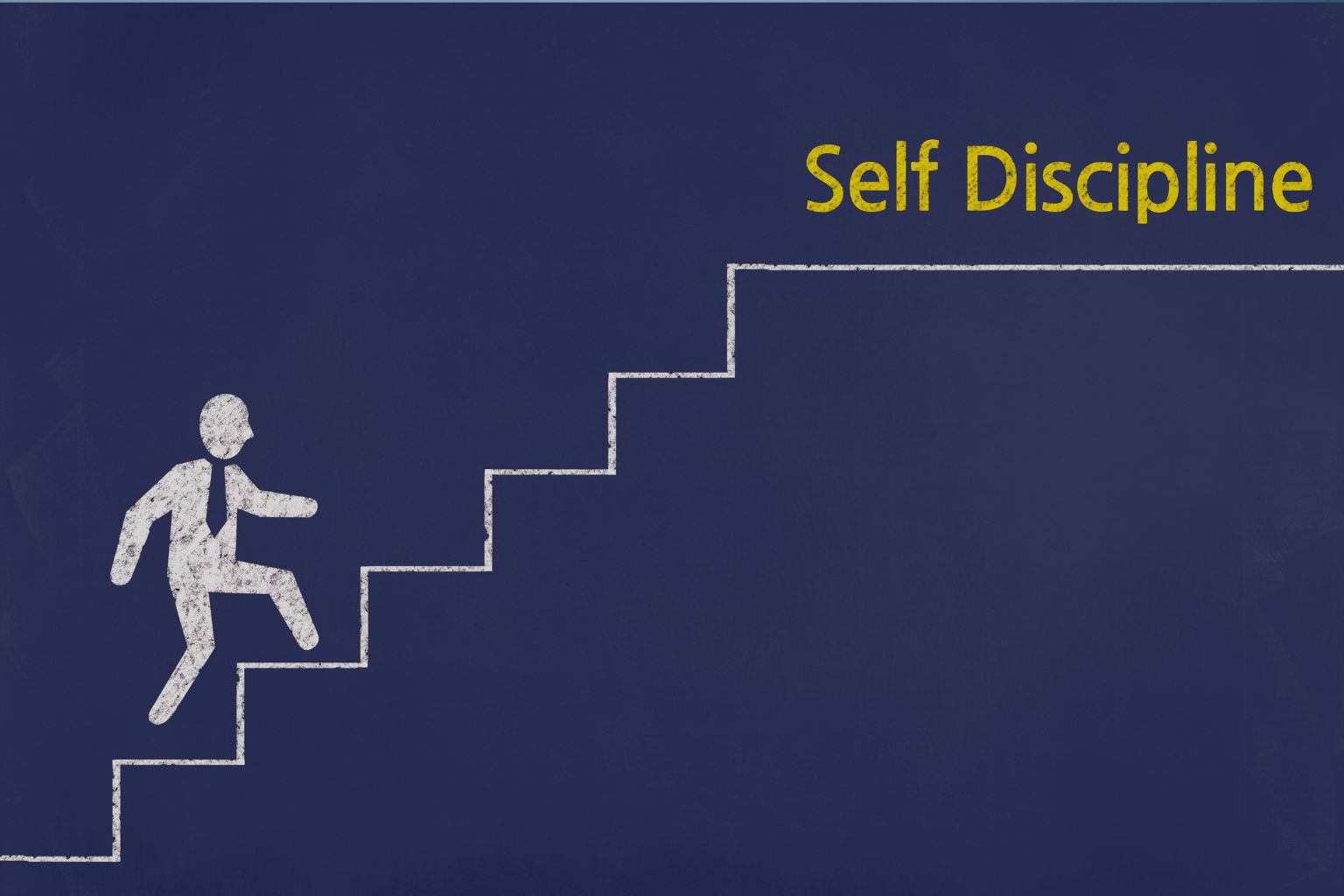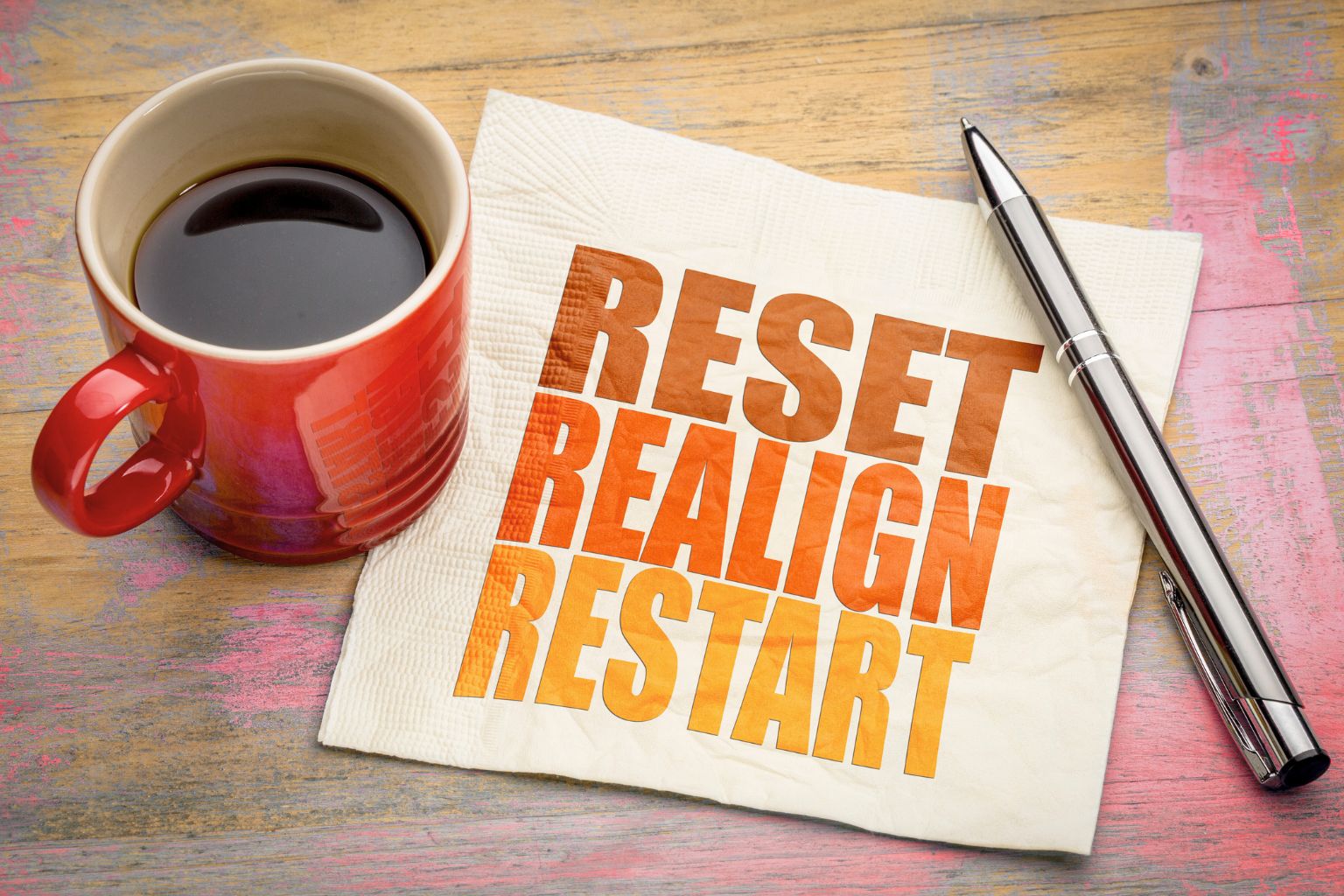Ready to take control of your life and crush your goals? Mastering how to build discipline is your secret weapon for turning dreams into reality, whether you’re aiming for a thriving career, a healthier body, or stronger relationships.
Discipline isn’t about being perfect—it’s about showing up, staying focused, and pushing through challenges with unstoppable consistency.
In this post, we’re sharing 10 actionable ways to build ironclad discipline that will transform your productivity, banish distractions, and set you on the path to success. Want more tips to fuel your journey? Visit mentaldisciplineforsuccess.com for a wealth of resources to keep you motivated.
Let’s dive in and discover how to build discipline with strategies that work!
Why Discipline Is Your Superpower
Discipline is the bridge between where you are and where you want to be. It’s the ability to prioritize what matters, act consistently, and resist the pull of instant gratification. Without it, distractions derail you, and goals remain out of reach.
But when you master how to build discipline, you unlock the power to shape your future. This post delivers 10 practical ways to build discipline, each with a definition, why it’s critical, how it drives success, and the right way to make it stick.
From setting clear goals to embracing resilience, these strategies will help you thrive.
For more insights on mastering mental discipline for success, check out mentaldisciplineforsuccess.com. Ready to ignite your discipline? Let’s get started!
1. Set Clear, Specific Goals
Definition: Setting clear, specific goals means defining precise, measurable outcomes you want to achieve, like “Run a 5K in 3 months” instead of “Get fit.”
Why It’s Important: Goals give you a roadmap, making how to build discipline easier by providing direction. Without clarity, you’re drifting, wasting energy on distractions or vague ambitions.
How It Helps: Specific goals focus your efforts, boost motivation, and create a sense of purpose, aligning daily actions with long-term success. They make discipline feel meaningful, not forced.
Right Way to Do It:
- Write one SMART goal (Specific, Measurable, Achievable, Relevant, Time-bound), e.g., “Save $500 by December for a course.”
- Break it into daily or weekly tasks, like “Save $10 weekly.”
- Review your goal daily in a journal or app like Notion to stay focused.
- Visualize achieving it, e.g., imagine acing that course.
- Adjust tasks weekly to stay on track without losing the core target.
Action Step: Grab a notebook now, write one SMART goal, and feel the clarity kickstart your discipline!
2. Create a Morning Routine
Definition: A morning routine is a set of intentional actions you do daily upon waking, like meditating, journaling, or exercising, to set a productive tone.
Why It’s Important: Mornings shape your mindset. A structured start teaches how to build discipline by training your brain to prioritize high-value tasks over chaos.
How It Helps: It reduces decision fatigue, boosts energy, and creates momentum, making it easier to tackle goals consistently and resist distractions.
Right Way to Do It:
- Choose 2-3 simple actions, e.g., 5-minute meditation, 10-minute walk, write 3 priorities.
- Start small—15 minutes total—to ensure you stick with it.
- Set a consistent wake-up time, e.g., 7 AM, using an alarm.
- Prep the night before: lay out workout clothes or journal.
- Track progress with a habit tracker like Habitica for 30 days to solidify the routine.
Action Step: Plan a 15-minute morning routine for tomorrow and watch your discipline soar!
3. Eliminate Distractions
Definition: Eliminating distractions means removing or minimizing interruptions, such as phone notifications or cluttered spaces, that pull you off track.
Why It’s Important: DistBasis of discipline is focus. Distractions weaken your ability to stay on task, so learning how to build discipline requires creating an environment where concentration thrives.
How It Helps: A distraction-free setup enhances productivity, sharpens mental clarity, and reinforces your commitment to goals, making success feel effortless.
Right Way to Do It:
- Silence phone notifications during work hours—use “Do Not Disturb” mode.
- Clear your workspace: keep only essentials like your laptop and notebook.
- Use apps like Freedom to block social media for 2-hour focus blocks.
- Set specific times for email or messages, e.g., 10 AM and 4 PM.
- Communicate focus hours to colleagues or family to minimize interruptions.
Action Step: Try a 2-hour distraction-free block today and feel the power of focused discipline!
4. Practice Time Blocking
Definition: Time blocking is scheduling specific tasks in dedicated time slots, like 9-10 AM for writing or 11 AM-12 PM for emails.
Why It’s Important: Time blocking organizes your day, teaching how to build discipline by prioritizing tasks and preventing procrastination.
How It Helps: It maximizes efficiency, reduces multitasking, and builds a habit of following through, ensuring steady progress toward your goals.
Right Way to Do It:
- Plan your day the night before using a calendar like Google Calendar.
- Assign 1-2 high-priority tasks to 60-minute blocks, e.g., “Write report.”
- Include short breaks (5-10 minutes) every 90 minutes to recharge.
- Stick to the schedule but allow flexibility for emergencies.
- Review at day’s end to adjust tomorrow’s blocks for better flow.
Action Step: Block one hour for a key task tomorrow and experience disciplined productivity!
5. Embrace Accountability
Definition: Accountability involves enlisting support from a friend, coach, or group to hold you responsible for your goals and actions.
Why It’s Important: External support strengthens how to build discipline by adding motivation and pressure to stay consistent, especially when willpower dips.
How It Helps: It creates responsibility, boosts commitment, and provides encouragement, making it easier to maintain disciplined habits over time.
Right Way to Do It:
- Find an accountability partner with similar goals, like a friend or colleague.
- Share your SMART goal and weekly tasks, e.g., “Exercise 3x this week.”
- Check in weekly via text or call to report progress and challenges.
- Join a community, like an online forum or local group, for shared motivation.
- Celebrate wins together to reinforce positive habits.
Action Step: Reach out to a friend today for weekly check-ins and turbocharge your discipline!
6. Track Your Progress
Definition: Tracking progress means monitoring your actions and results using a journal, app, or checklist to measure advancement toward goals.
Why It’s Important: Tracking reinforces how to build discipline by showing tangible progress, keeping you motivated and focused on the long game.
How It Helps: It builds self-awareness, highlights patterns (e.g., when you slack), and celebrates wins, making discipline rewarding and sustainable.
Right Way to Do It:
- Use a simple tool: journal, spreadsheet, or app like Todoist.
- Log daily actions, e.g., “Completed 30-minute workout.”
- Review weekly: note wins (e.g., 5/7 days on task) and areas to improve.
- Set milestones, e.g., “30 days of consistent tracking.”
- Reward small wins, like a coffee treat after a week of tracking.
Action Step: Start a progress journal tonight and watch your discipline grow with every entry!
7. Practice Saying No
Definition: Saying no is declining non-essential tasks, invitations, or distractions that don’t align with your goals.
Why It’s Important: Saying no protects your time and energy, a core part of how to build discipline, by keeping you focused on priorities.
How It Helps: It strengthens decision-making, reduces overwhelm, and builds confidence in your commitments, paving the way for consistent success.
Right Way to Do It:
- Identify your top 3 daily priorities, e.g., work, exercise, family.
- Politely decline requests outside these, e.g., “I can’t join, but thanks!”
- Practice scripts: “I’m focused on a project now, let’s reconnect later.”
- Schedule “no” time for deep work or self-care, e.g., 2 PM-4 PM.
- Reflect weekly on how saying no saved time for goals.
Action Step: Say no to one non-essential task today and feel the freedom of disciplined focus!
8. Build Resilience to Setbacks
Definition: Building resilience means developing the ability to bounce back from failures or challenges without losing momentum.
Why It’s Important: Setbacks test your discipline. Mastering how to build discipline requires resilience to stay on track despite obstacles.
How It Helps: Resilience fosters a growth mindset, reduces fear of failure, and keeps you moving forward, ensuring long-term success in any endeavor.
Right Way to Do It:
- After a setback, journal one lesson, e.g., “Missed workout due to poor planning.”
- Reset within 24 hours: recommit to your next action, e.g., “Gym tomorrow.”
- Reframe failures as learning: “I’m growing, not failing.”
- Seek support: talk to a mentor or friend for perspective.
- Celebrate small recoveries, e.g., “Back on track after a missed day!”
Action Step: Face a setback this week? Journal one lesson and reset to strengthen your discipline!
9. Prioritize Self-Care
Definition: Self-care is nurturing your physical, mental, and emotional health through actions like sleep, exercise, or mindfulness.
Why It’s Important: Discipline demands energy. Prioritizing self-care is essential for how to build discipline, sustaining focus and resilience over time.
How It Helps: It boosts stamina, improves mood, and prevents burnout, making it easier to maintain consistent, disciplined habits without crashing.
Right Way to Do It:
- Aim for 7-8 hours of sleep nightly with a bedtime routine.
- Move daily: try a 20-minute walk or stretch session.
- Practice 5-minute mindfulness, like deep breathing, to reduce stress.
- Eat balanced meals, e.g., add veggies to lunch for energy.
- Schedule self-care like a meeting, e.g., “8 PM: Read for 15 minutes.”
Action Step: Add one self-care habit today, like a 5-minute stretch, and fuel your disciplined life!
10. Surround Yourself with Inspiration
Definition: Surrounding yourself with inspiration means engaging with people, content, or environments that motivate and align with your goals.
Why It’s Important: Inspiration keeps your mindset positive, reinforcing how to build discipline by making disciplined actions feel exciting and achievable.
How It Helps: It normalizes success, sparks creativity, and strengthens commitment, helping you stay motivated even on tough days.
Right Way to Do It:
- Follow 3 inspiring figures online, like entrepreneurs or fitness coaches.
- Read or listen to 10 minutes of motivational content daily, e.g., a podcast.
- Join a goal-oriented group, like a local networking event or online community.
- Curate your space: add quotes or vision boards to your desk.
- Connect weekly with someone who’s achieved your goal for insights.
Action Step: Follow one inspiring person today and let their energy boost your discipline!
Expanding on Discipline’s Impact
To truly master how to build discipline, it’s worth understanding its broader impact. Discipline isn’t just about checking tasks off a list—it’s about rewiring your habits, mindset, and life for success.
Each of the 10 ways above builds a foundation for mental discipline for success, helping you overcome procrastination, stay focused under pressure, and achieve goals that once felt out of reach.
Let’s dive deeper into why these strategies work and how you can sustain them for long-term wins.
Discipline as a Habit
Discipline is like a muscle—the more you use it, the stronger it gets. By setting clear goals (1. Set Clear, Specific Goals), you give your brain a target to aim for, reducing the mental clutter that leads to indecision.
A morning routine (2. Create a Morning Routine) creates a daily anchor, training your mind to start strong no matter the circumstances.
Eliminating distractions (3. Eliminate Distractions) and time blocking (4. Practice Time Blocking) protect your focus, ensuring your energy goes to what matters most.
These habits compound over time, turning discipline into second nature.
For example, consider Sarah, a freelancer who struggled with deadlines. By using time blocking and eliminating distractions, she doubled her output in a month. She started small—30-minute focus blocks—and scaled up, proving that how to build discipline is about consistency, not perfection. You can do the same by picking one way and committing to it for 21 days, the average time to form a habit.
Discipline and Resilience
Setbacks are inevitable, but they don’t have to derail you. Building resilience (8. Build Resilience to Setbacks) and prioritizing self-care (9. Prioritize Self-Care) ensure you bounce back stronger. Resilience reframes failures as lessons, while self-care keeps your energy high.
Together, they create a cycle of growth: act, learn, recharge, repeat. This is key to mental discipline for success, as it helps you stay steady through life’s ups and downs.
Take Alex, a marathon runner who missed a training session due to illness. Instead of quitting, he used the 24-hour reset rule (8. Build Resilience to Setbacks) and prioritized sleep (9. Prioritize Self-Care). Within a week, he was back on track, stronger than before. You can adopt this by journaling one setback and one self-care action this week, building a resilient, disciplined mindset.
Discipline and Community
Discipline thrives in the right environment. Embracing accountability (5. Embrace Accountability) and surrounding yourself with inspiration (10. Surround Yourself with Inspiration) leverage the power of community to keep you on track.
Accountability partners provide external motivation, while inspiring figures show you what’s possible. These connections make how to build discipline feel less lonely and more exciting.
For instance, Maria joined a local entrepreneurs’ group (10. Surround Yourself with Inspiration) and found an accountability partner (5. Embrace Accountability). Their weekly check-ins helped her launch her business in six months, something she’d delayed for years. You can start by joining one community this month, online or in-person, to boost your discipline through shared energy.
Sustaining Discipline Long-Term
To make discipline stick, tracking progress (6. Track Your Progress) and practicing saying no (7. Practice Saying No) are game-changers. Tracking keeps you honest, showing where you’re winning and where you need to adjust. Saying no protects your time, ensuring you focus on high-impact tasks. Together, they create a feedback loop: track, prioritize, improve, repeat.
Consider John, a student who tracked his study hours (6. Track Your Progress) and said no to extra social events (7. Practice Saying No). He aced his exams by focusing on what mattered. You can do this by starting a simple tracker and declining one non-essential task this week, reinforcing your discipline for the long haul.
These deeper insights show why how to build discipline is transformative. Each way builds on the others, creating a system for success. Whether you’re starting with a morning routine or building resilience, every step strengthens your ability to achieve mental discipline for success. For more strategies to fuel your journey, visit mentaldisciplineforsuccess.com and explore our resources!
Real-World Applications
Let’s bring discipline to life with practical examples across different areas. These show how the 10 ways apply to common goals, making how to build discipline relevant to your unique journey.
Career: Skyrocketing Productivity
In your career, discipline means delivering results consistently. Use time blocking (4. Practice Time Blocking) to tackle high-priority projects, like preparing a presentation, and eliminate distractions (3. Eliminate Distractions) by silencing notifications. Track progress (6. Track Your Progress) to ensure you’re hitting deadlines.
For example, Lisa, a marketing manager, used these strategies to land a promotion by focusing on key tasks daily, proving discipline drives career wins. Start by blocking one hour for a work project this week and watch your productivity soar.
Fitness: Building Consistent Habits
Fitness thrives on discipline, not motivation. Create a morning routine (2. Create a Morning Routine) with a 15-minute workout and prioritize self-care (9. Prioritize Self-Care) with 7-8 hours of sleep. Set a clear goal (1. Set Clear, Specific Goals), like “Lose 10 pounds in 3 months.”
James, a busy dad, used these to run his first 5K by starting with short walks and tracking progress. Try a 10-minute workout tomorrow morning to kickstart your fitness discipline.
Relationships: Strengthening Bonds
Strong relationships require disciplined communication. Practice saying no (7. Practice Saying No) to distractions like phones during family time and embrace accountability (5. Embrace Accountability) by sharing goals with a partner, like “Have one weekly date night.” Surround yourself with inspiration (10. Surround Yourself with Inspiration) by connecting with couples who prioritize connection.
Emma used these to rebuild trust with her spouse, focusing on quality time. Say no to one distraction during dinner this week to strengthen your bonds.
Personal Growth: Unlocking Potential
Personal growth is about consistent self-improvement. Build resilience (8. Build Resilience to Setbacks) to overcome setbacks, like missing a learning session, and track progress (6. Track Your Progress) to celebrate wins, like reading a book chapter. Create a morning routine (2. Create a Morning Routine) with journaling to reflect on growth.
Rachel, a student, used these to boost her confidence, tracking her study habits and resetting after setbacks. Start journaling one growth win tonight to unlock your potential.
These applications show that how to build discipline is universal, adaptable to any goal. Pick one area—career, fitness, relationships, or growth—and apply one way this week to see results. For more tips to fuel your journey, visit mentaldisciplineforsuccess.com!
Overcoming Common Challenges
Building discipline isn’t always smooth, but you can overcome obstacles with the right mindset. Here are common challenges and how the 10 ways address them, ensuring you stay on track.
Challenge 1: Lack of Motivation
Motivation fades, but discipline doesn’t. Use a morning routine (2. Create a Morning Routine) to start strong, even on low-energy days, and surround yourself with inspiration (10. Surround Yourself with Inspiration) to stay fired up.
For example, when Tom felt unmotivated, he listened to a motivational podcast daily (10. Surround Yourself with Inspiration) and stuck to a 10-minute routine, regaining his spark. Try a 5-minute morning stretch and follow an inspiring figure this week to beat the motivation slump.
Challenge 2: Overwhelm from Too Many Tasks
Feeling overwhelmed kills discipline. Practice saying no (7. Practice Saying No) to non-essential tasks and use time blocking (4. Practice Time Blocking) to focus on one priority at a time. Sarah, a small business owner, cut her to-do list by saying no to extra projects and blocking 90-minute work sessions, reducing stress.
Say no to one task and block one hour for a priority tomorrow to tame overwhelm.
Challenge 3: Fear of Failure
Fear of failure can paralyze you. Build resilience (8. Build Resilience to Setbacks) by reframing setbacks as lessons and set clear goals (1. Set Clear, Specific Goals) to keep your focus on progress, not perfection. When Mia missed a deadline, she journaled the lesson (8. Build Resilience to Setbacks) and reset her SMART goal (1. Set Clear, Specific Goals), moving forward confidently. Journal one setback this week and reframe it as growth to conquer fear.
Challenge 4: Inconsistent Habits
Inconsistency undermines discipline. Track progress (6. Track Your Progress) to spot gaps and embrace accountability (5. Embrace Accountability) to stay committed.
John, a writer, used a habit tracker and weekly check-ins with a friend to write daily, building a streak. Start tracking one habit and find an accountability partner this week to lock in consistency.
These solutions show that how to build discipline is about systems, not willpower.
By addressing challenges with the 10 ways, you’ll stay steady and achieve mental discipline for success. For more strategies to overcome obstacles, visit mentaldisciplineforsuccess.com!
Conclusion
Congratulations—you’ve unlocked 10 ways to build ironclad discipline that can revolutionize your life! From setting clear goals to surrounding yourself with inspiration, these strategies make how to build discipline not just achievable but exhilarating.
Discipline is your superpower for crushing goals, whether in your career, fitness, relationships, or personal growth. Start with one way today—maybe a morning routine or saying no—and watch your focus, productivity, and confidence skyrocket. Ready for more tools to fuel your success?
Visit mentaldisciplineforsuccess.com for a treasure trove of resources to keep you thriving. Don’t wait—pick one way, take action, and ignite your disciplined journey now!
FAQs
Start small with one habit, like a 10-minute morning routine, and track progress daily. Consistency builds momentum quickly.
Motivation is fleeting, but discipline endures. Use time blocking and accountability to act despite low energy.
Yes! Discipline is a skill, not a gift. Start with clear goals or self-care to build it step-by-step, no matter your starting point.
Habits form in 21-66 days, but you’ll see discipline grow within weeks with consistent action. Track progress to stay on course.
















Share it!